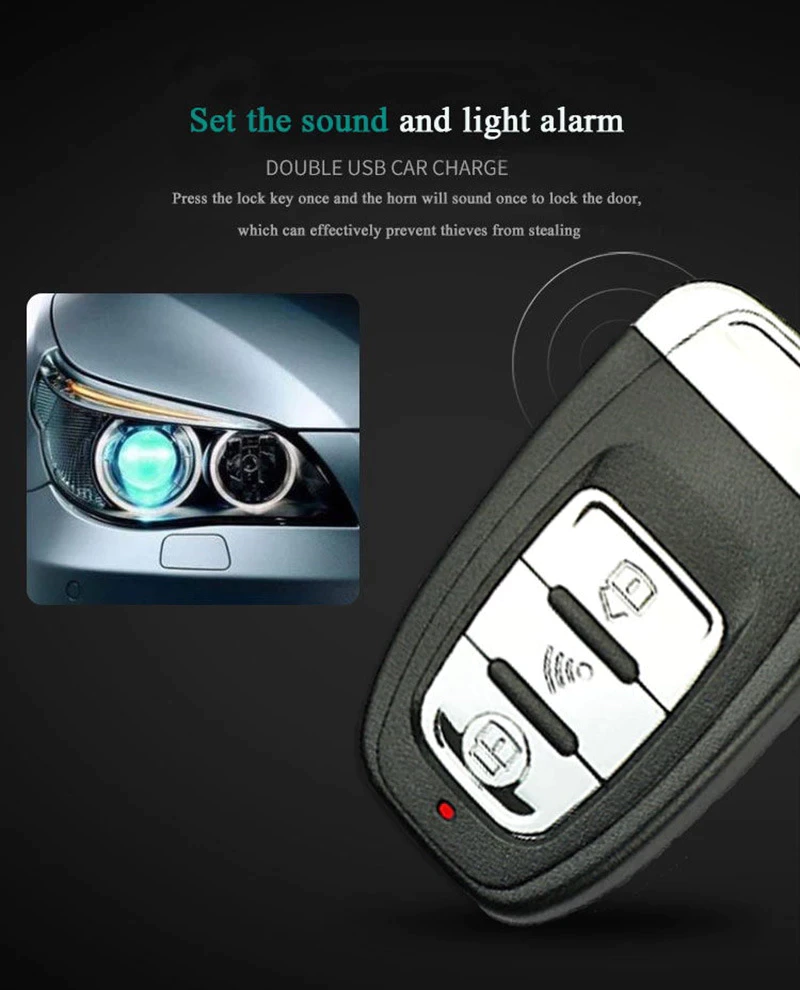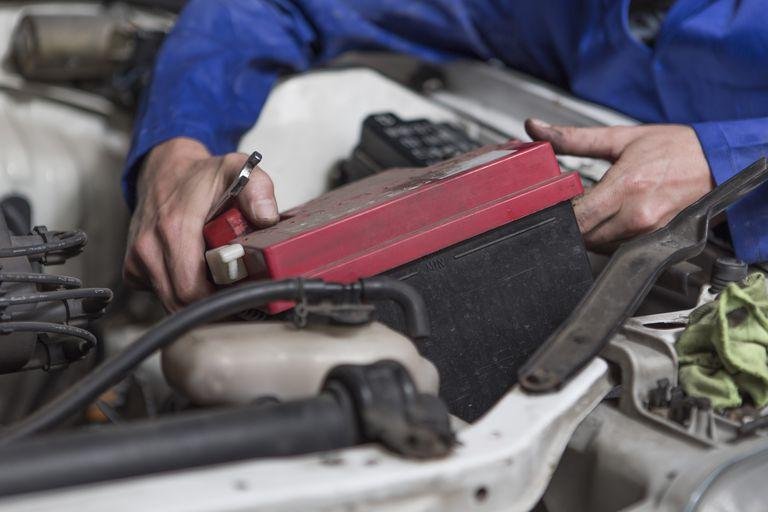Car alarm systems are installed in vehicles to discourage car theft. They work by transmitting signals from sensors to the control unit which ends with an alarm. This process involves automatically switching off your car’s ignition circuit to prevent hardwired car theft. Advanced Alarm systems have tremendously improved car security but can alarm system prevent car from starting ?
While it is not common, your car alarm system can prevent your car from starting. This could be your alarm system protecting your car from theft. Advanced car alarm systems are fitted with remote-controlled immobilizers which prevent your car from starting by cutting off the ignition circuit.
There are other reasons why a properly functional car won’t start. A damaged key can also prevent your car from starting. Figuring out the cause before concluding on your car problem is important for correct car maintenance.
Table of Contents
How To Fix A Car That Won’t Start Because Of The Alarm System
1. Check your batteries
Check your nob, alarm system control unit, and car battery. Several alarm systems rely on the car battery to function. A dead car battery will therefore affect your car’s functionality. Take the time to always charge your car battery for improved security by taking note of your battery readings. You should also check the battery connections for wrong connections.
Your alarm system may prevent your car from starting if your remote is out of battery. Without deactivating the anti-theft function, your car will be inaccessible until you make the right input on your remote. Check your battery often and replace it when necessary. Also, check the manufacturer’s recommendations before buying a replacement battery.
The alarm system control unit is either self-powered or is powered by your car’s battery. Either way, a dead battery may cause your system control to stop functioning, thereby making it impossible to receive and execute commands.
Always check that the necessary batteries are functioning at optimal levels. And if you’re going to use your car without the remote, make sure you deactivate the anti-theft feature before turning off the remote.
2. Reset Car’s Computer
Your car’s computer may be preventing your car from starting. However, a proper reset can get it back working. Remove the positive terminal of your car’s battery and attach it back in 2 minutes. You should be able to start your car now.
3. Use Remote
The remote has a feature that allows you to activate an anti-theft feature that immobilizes the car by disconnecting the ignition circuit, even when hard-wired. This feature is triggered with the panic button. Once pressed, the car becomes immobilized and will require deactivation.
Gain back control of your car by holding the panic button for 5 seconds, followed by tapping the lock button twice and waiting ten minutes before taking the next step. Next, tap the unlock button twice and wait for notifications such as headlight flashing and honking.
Car remotes are not protected from damages, and a single fault in your car remote may prevent the transmission of commands. Make sure you properly maintain your car remotes and check the battery for signs of replacement.
4. Remove Alarm fuse
Just like every other electrical-powered feature in a car, the alarm system is powered by a circuit that can be found in the fuse panel. Removing it will result in a soft reboot to help troubleshoot the car’s immobilizer. Modern cars will remain off without the alarm fuse, making it impossible for thieves to easily get away with your vehicle.
5. Check Key
Cars keys send codes to the alarm system whenever inserted. The wrong key in your keyhole triggers the alarm. Your alarm system may prevent your car from starting if it no longer recognizes the code from your key. This is common with a damaged car key. Try your extra keys and if the car opens, then replace the damaged key.
Security Tips for Cars that won’t start.
While car alarms are efficient at protecting your investment, there are other car security measures that you should follow. Here are some security tips for your car.
1. Keep your car keys safe
Your keys should always be secure. Avoid leaving it in the easily accessible areas of your car. Have with you and keep the extra keys hidden in your home. Your alarm won’t alert you if the original key is inserted in the keyhole. Value your car key notwithstanding the current state of your car. There is a higher risk of your car being stolen if you lose your car keys, even if your alarm system is preventing your car from starting.
2. Park safe
Always park in safe areas and parking lots. Avoid parking on streets, especially in unfamiliar or new neighborhoods. Use certified and secured parking lots. If you have to park in an unfamiliar area, then look for out spots with CCTV coverage. Cars within any camera frame have a lower risk of being stolen. Areas with sufficient lighting are also good for night parking.
3. Secure your wheels
Wheels are some of the most stolen things in a car as they’re highly-priced and can be easily accessed by thieves. A deactivated alarm system may fail to alert you of wheel theft. To protect your investment and property, manually secure your wheels with nuts. Locking your wheels is simple and doesn’t require extra education.
4. Keep valuables out of sight
Keep any valuables in your car out of reach and sight. Avoid attracting petty thieves to your car who wouldn’t hesitate to break your window. Keep your valuables safe before exiting your car. Make sure your windows are rolled up when driving in suspicious areas to avoid carjacking and snatching. Use your pockets, bags, and secured car compartments for valuables.
5. Lock steering wheels
A locked steering wheel prevents anyone from driving away with your car, even after a successful jacking. While a steering wheel lock may seem excessive, it remains effective at repelling car thieves. The mere presence of a steering lock deters the thief from attempting to gain access to your car. A steering wheel lock is necessary if you’re going to areas with high cases of car theft and carjacking.
6. Install GPS tracker
Your car is most vulnerable when you can’t operate it. Therefore, installing a GPS tracker would come in handy in case it gets stolen. A GPS helps you locate your car with minimal effort and gives you peace of mind. Cars installed with GPS also have fewer insurance premiums and cheaper plans because of their lower risk of theft.
7. Lock your car
While this is fairly obvious, locking your car prevents strangers from accessing your car and stealing it. Leaving cars unlocked is rampant in most parts of the country and is encouraged because of the installed immobilizers present in most advanced cars. The risk of your car being stolen is higher when it’s unlocked than when it is properly locked with a car and remote.
8. Turn off your car
The fast-paced metropolitan life makes us less security conscious. Some people are guilty of leaving their cars running, with the key present in the ignition box while attending to something else outside the car. This is more common at gas stations. Turn off and lock your car if you’d be leaving your car for even 30 seconds.
9. Regular maintenance
Regular maintenance points you in the direction of possible damage that could hinder the optimal performance of your car alarm system. Make sure your car maintenance is handled by an experienced auto mechanic.
Conclusively, a car alarm system may stop your car from starting if the batteries are dead or improperly connected, or worse, if the car alarm system has developed a fault. Keep the batteries charged and follow the safety tips to keep your car safe.



